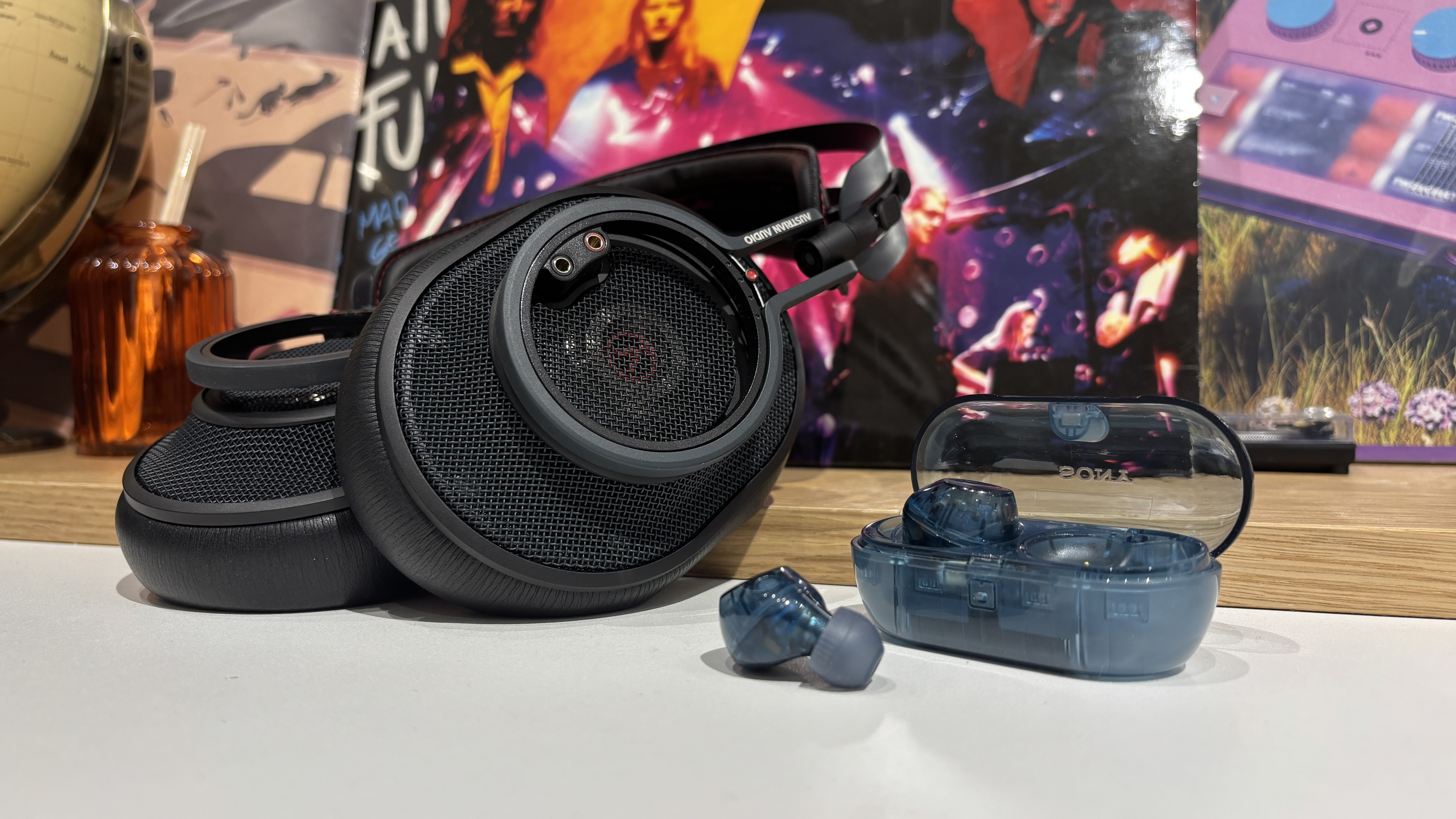What Hi-Fi? Verdict
Proof once more TV quality doesn’t necessarily scale up and down in size as you might expect, the 43-inch Omni QLED isn’t a patch on its larger siblings
Pros
- +
Sharp, bright and detailed picture
- +
Good sound, particularly for the price
- +
Fire OS is simple and app-packed
Cons
- -
Seriously lacking black depth
- -
Smeary motion
- -
Pale colours
Why you can trust What Hi-Fi?
After a recent few years of disappointment in the cheap TV category, Amazon’s Fire TV Omni QLED range has been a breath of fresh air.
The 65-inch model impressed us with the balance and consistency of its picture performance, the clarity of its sound and the completeness of its Fire OS operating system. The 50-inch model is better still, boasting all of the qualities of the larger model with an extra degree of smoothing to its few rough edges.
Now, it’s the turn of the baby of the Omni QLED range – the 43-inch model. Is this the budget 43-inch TV we’ve been waiting for? Unfortunately, no. One big spec downgrade seems to have resulted in an even bigger picture quality downgrade that makes the 43-inch Omni QLED a huge disappointment.
Price
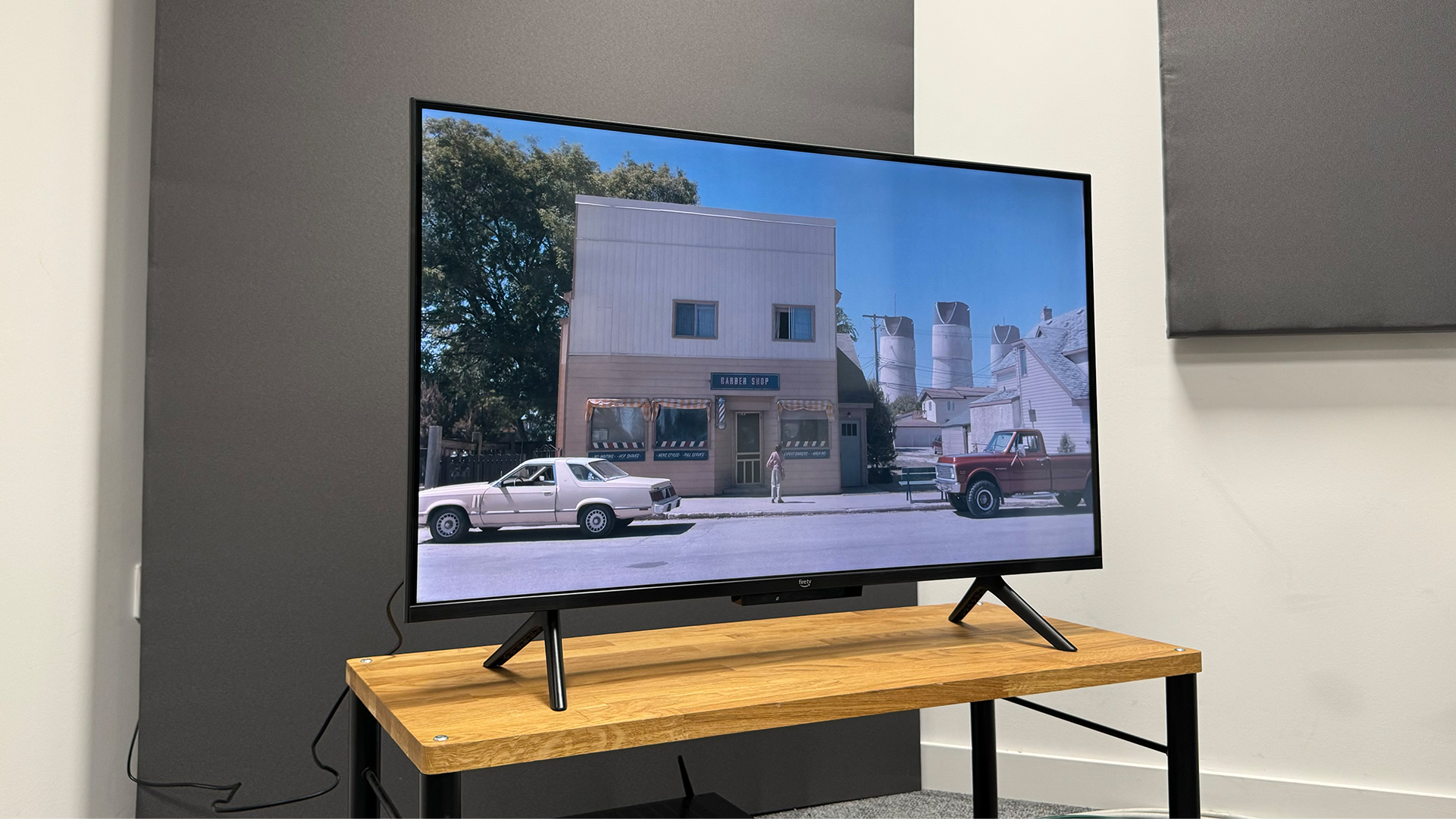
The official price of the 43-inch Amazon Fire TV Omni QLED is £550 / $450 (around AU$1065), but you should most certainly not pay that much for it. That’s because Amazon puts its Omni QLED range on sale on a very regular basis and discounts of around £200 / $100 are common.
Design
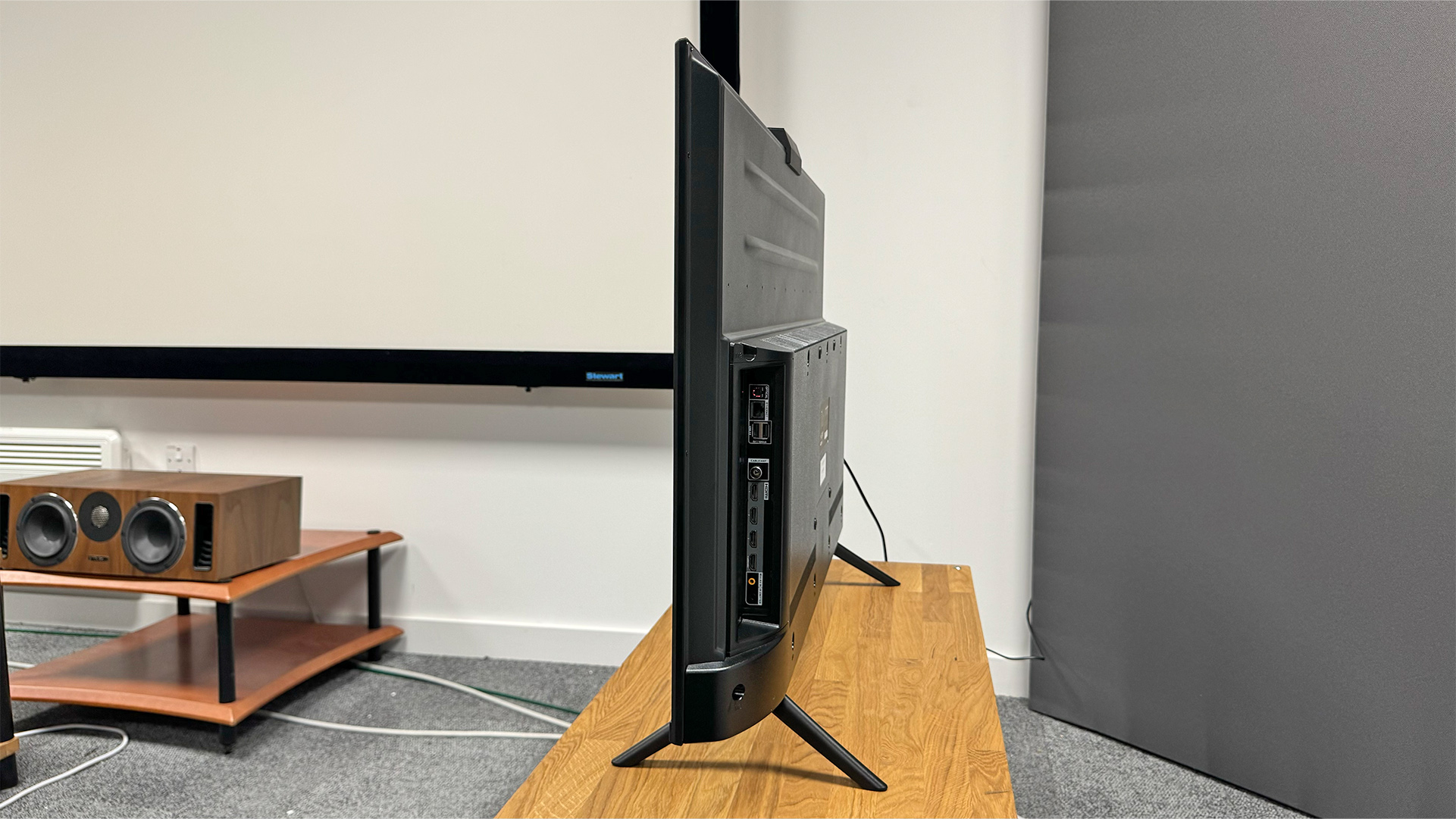
As you would probably expect, the 43-inch Amazon Omni QLED looks very much like its 50-inch sibling, only smaller. That means it’s quite a chunky, black plastic affair that looks and feels a bit cheap up close but looks perfectly reasonable from across the room. It has very similar black plastic feet, too (you get none of the 65-inch model’s silver accents here), but they’re tucked in slightly from the set’s edges, giving the TV a fairly compact footprint. There’s also a good amount of space beneath the TV for a soundbar.
The one unusual design element compared with other TVs is the relatively large undercarriage. This houses a series of sensors that enable the set’s ‘Ambient Experience’ which, among other things, allows the set to turn on and display photos or artwork when you enter the room; and far-field microphones that allow you to issue commands to the TV – via Alexa, of course – without even needing to touch the remote control. Voice control is actually baked into the Omni QLED experience really well, but should it not appeal to you, there’s a physical switch on the undercarriage that completely disables the microphones. A red light means the TV isn’t listening.
Features
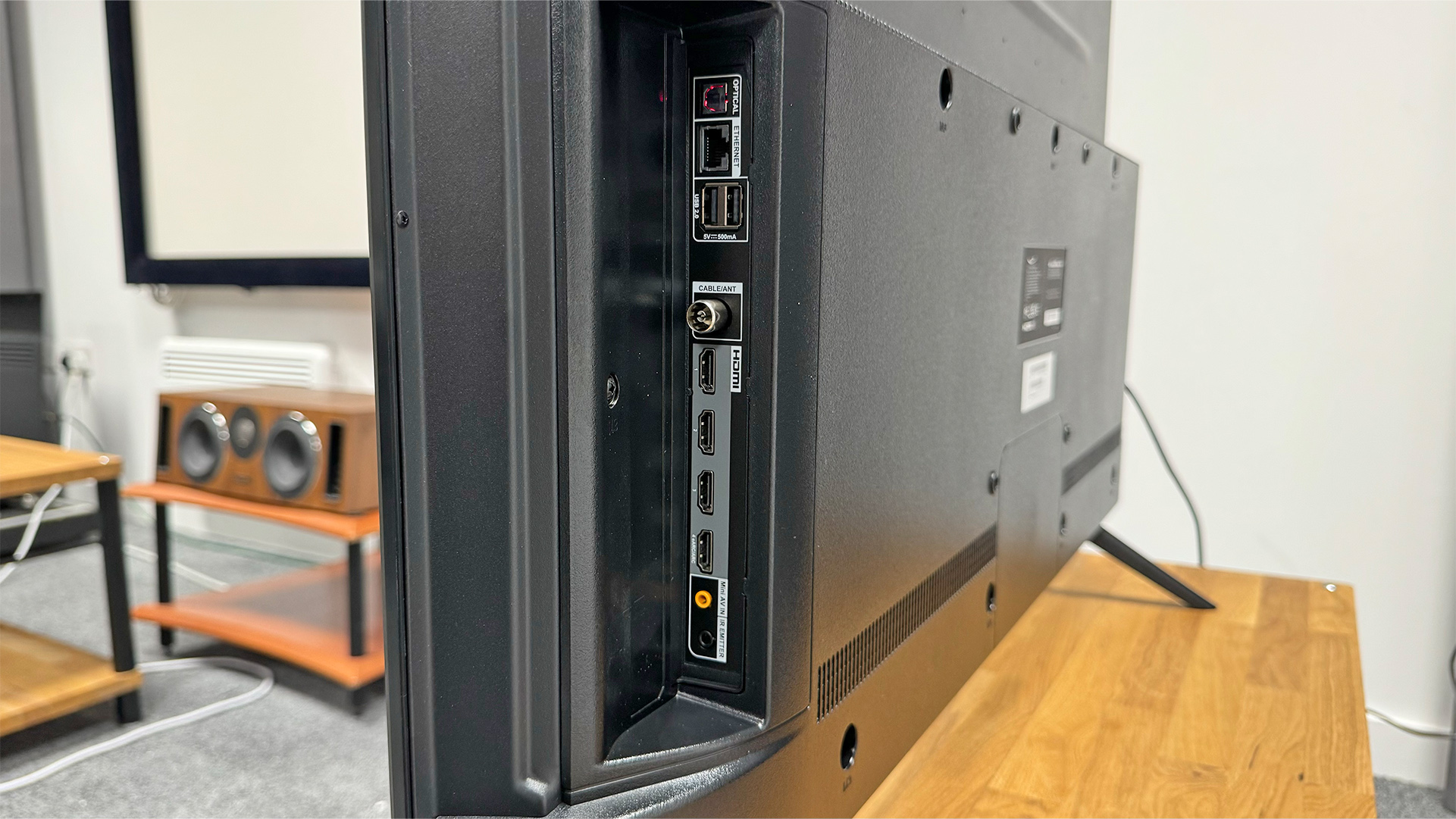
Other than size, there’s one big difference between this 43-inch version of the Omni QLED and its large siblings: this smaller model lacks local dimming. What that means is that while the versions that are 50 inches and larger can light or dim separate areas of their backlights to increase contrast, the 43-inch model cannot. It’s worth noting that a lack of local dimming doesn’t automatically make a TV bad, but the subsequent contrast limitations mean that the manufacturer has to make some considered choices when it comes to the way the set approaches things, particularly brightness.
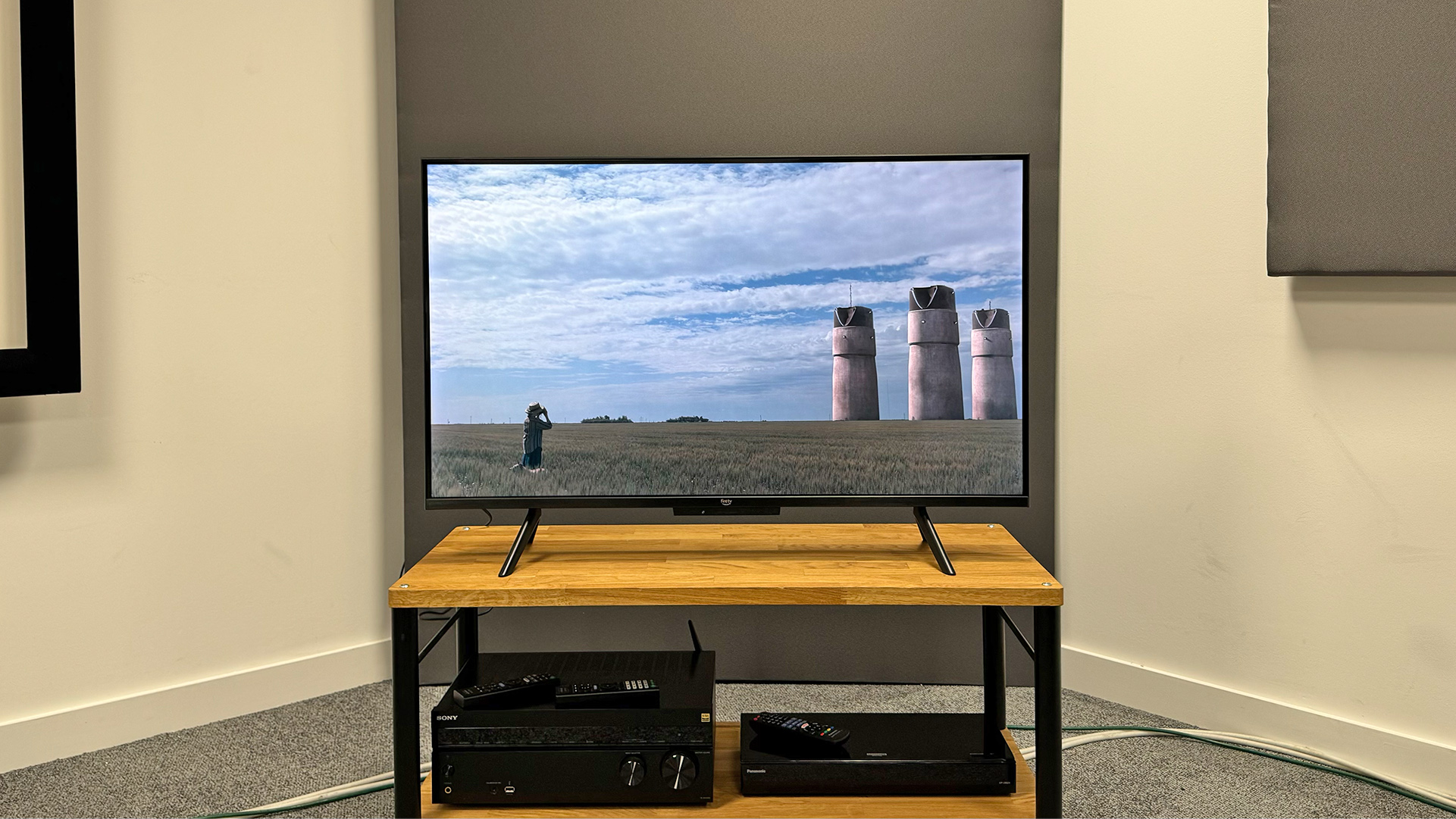
Screen size 43 inches (also available in 50in, 55in, 65in, 75in)
Type QLED
Backlight Direct LED
Resolution 4K
HDR formats supported HLG, HDR10, HDR10+, Dolby Vision
Operating system Fire OS
HDMI inputs x 4
Gaming features VRR, ALLM, Dolby Vision game mode
ARC/eARC eARC
Optical output? Yes
Dimensions (hwd, without stand) 57 x 96 x 8.4cm
Otherwise, the 43-inch Omni QLED is just as well-appointed as the larger models. The TV might lack local dimming but it does at least feature a direct LED backlight, which should make it brighter than the edge-lit TVs commonly found at this level, and it also features Quantum Dots for theoretically better colour reproduction than you would get from a standard LCD model.
Of course, the Fire OS operating system is front and centre, and that’s no bad thing. These days Fire OS is very intuitive and easy to use, and it features every streaming app you’re likely to need. The set supports all four of the current HDR TV formats – HLG, HDR10, HDR10+ and Dolby Vision – and during our tests, every app that should output content in one of those formats does so. The Amazon ‘hard sell’ is pretty soft now, too, and Fire OS actually features more complete and less biased content aggregation than many of its rivals.
By the standards of cheap TVs, the Omni QLED is relatively well-specced for gamers, too. 4K/120Hz is beyond its capabilities, of course, but VRR, ALLM and even Dolby Vision gaming are on the menu.
Picture
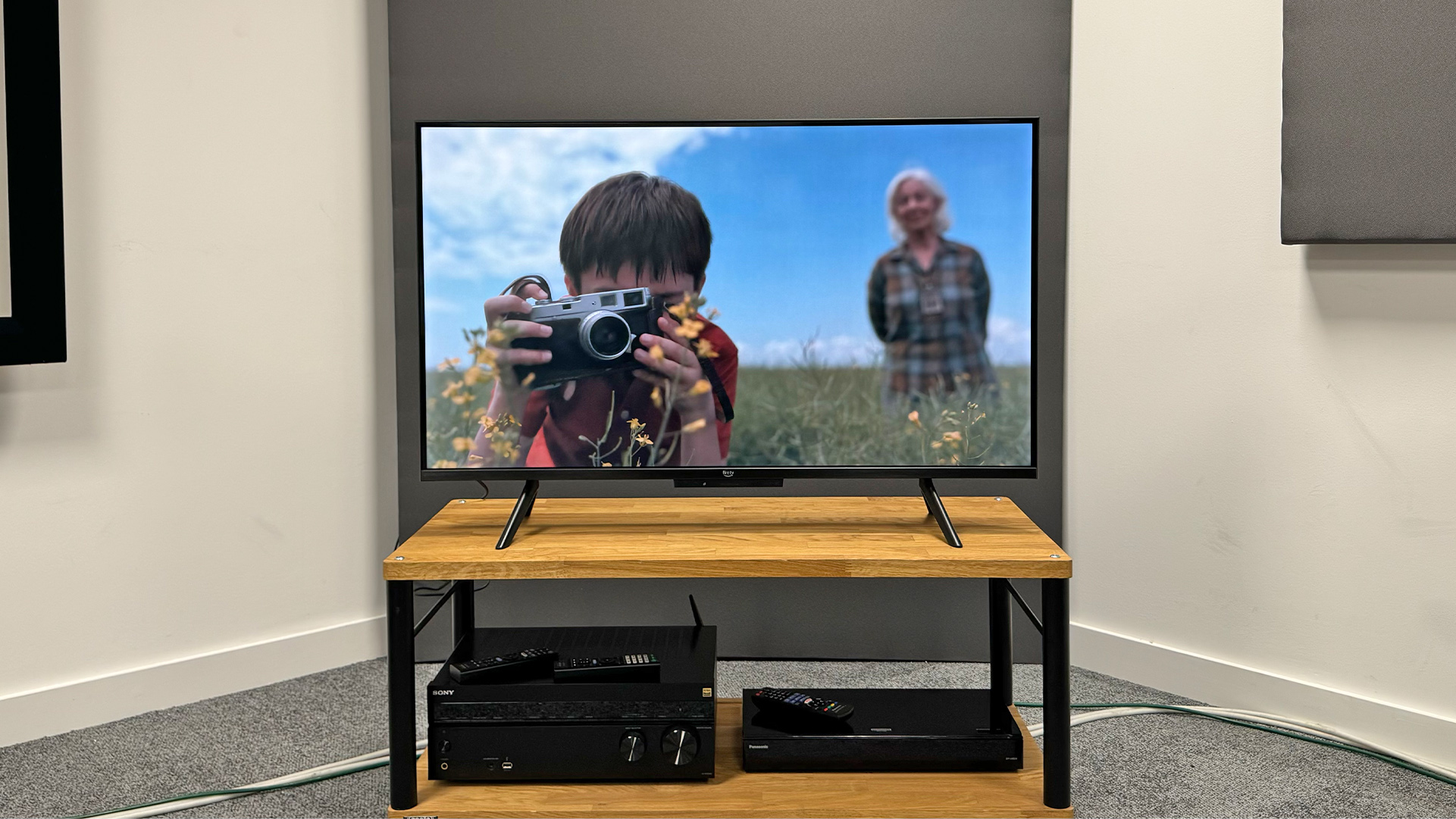
It unfortunately takes very little time to realise that the 43-inch Amazon Omni QLED simply isn’t in the same league as the larger models in the range. From the moment we fire up our trusty Blade Runner 2049 4K Blu-ray and the studio logos appear, it becomes clear that the removal of local dimming has cost the TV dearly, and that Amazon hasn’t done enough to compensate for that deficiency.
Really, the TV barely hints at black, instead reproducing what should be black as somewhat dark grey. As the real action begins, this lack of depth, which also robs colours of their richness, results in a rather flat and faded rendition of the movie. We of course switch between various movies in HDR and SDR and experiment with every relevant setting, but none of the presets offer convincingly deep blacks or colours with much vibrancy. Manually reducing the Backlight setting does increase the depth of the blacks, of course, but it also results in a hopelessly dull image that is on balance worse than the alternative.
The backlight is mercifully free of the sort of blotching and cloudiness that you get with many cheap TVs, but there is a slightly annoying band of light at the left and right edges of the screen, and our retail sample suffers slightly with the so-called ‘dirty screen effect’, where faint lines down the display are revealed by images – panning shots, in particular – with large swathes of the same colour. This is one of those fairly common cheap TV traits, but it’s one that shouldn’t really be present on a TV that nominally costs £550 / $450. For what it’s worth, the significantly cheaper Hisense 43A6KTUK that we use as a reference for much of our testing has a much cleaner backlight.
It’s not all bad, though. The 43-inch Omni QLED can go very bright and will cut through significant ambient light in a way that few TVs at this level, including the aforementioned Hisense, can match. That might be a valuable asset if you are primarily interested in watching sport in a conservatory or other very bright room.
There’s good sharpness to the TV’s reproduction of 4K movies, too, even without the edge-enhancing bonus that contrast often brings, and the upscaling is also solid, with HD sources blending sharpness and smoothness fairly effectively – though, as with the 50-inch model, there’s a little more noise to upscaled content than you get from more expensive sets.
Detail levels are also very high, with the Omni QLED avoiding the vague softness that’s typical of cheap TVs and instead reproducing fine details in a way more akin to models costing twice the price. Its ability to dig up shadow detail is particularly impressive, even if that is assisted by the set’s black depth deficiencies.
Unfortunately, we have to mention two further flaws before closing this section. The first is motion, which is smeary even by the standards of cheap TVs, and the second is the viewing angles, which are disappointingly limited and leave those viewing off-axis with an extra washed-out picture.
Sound
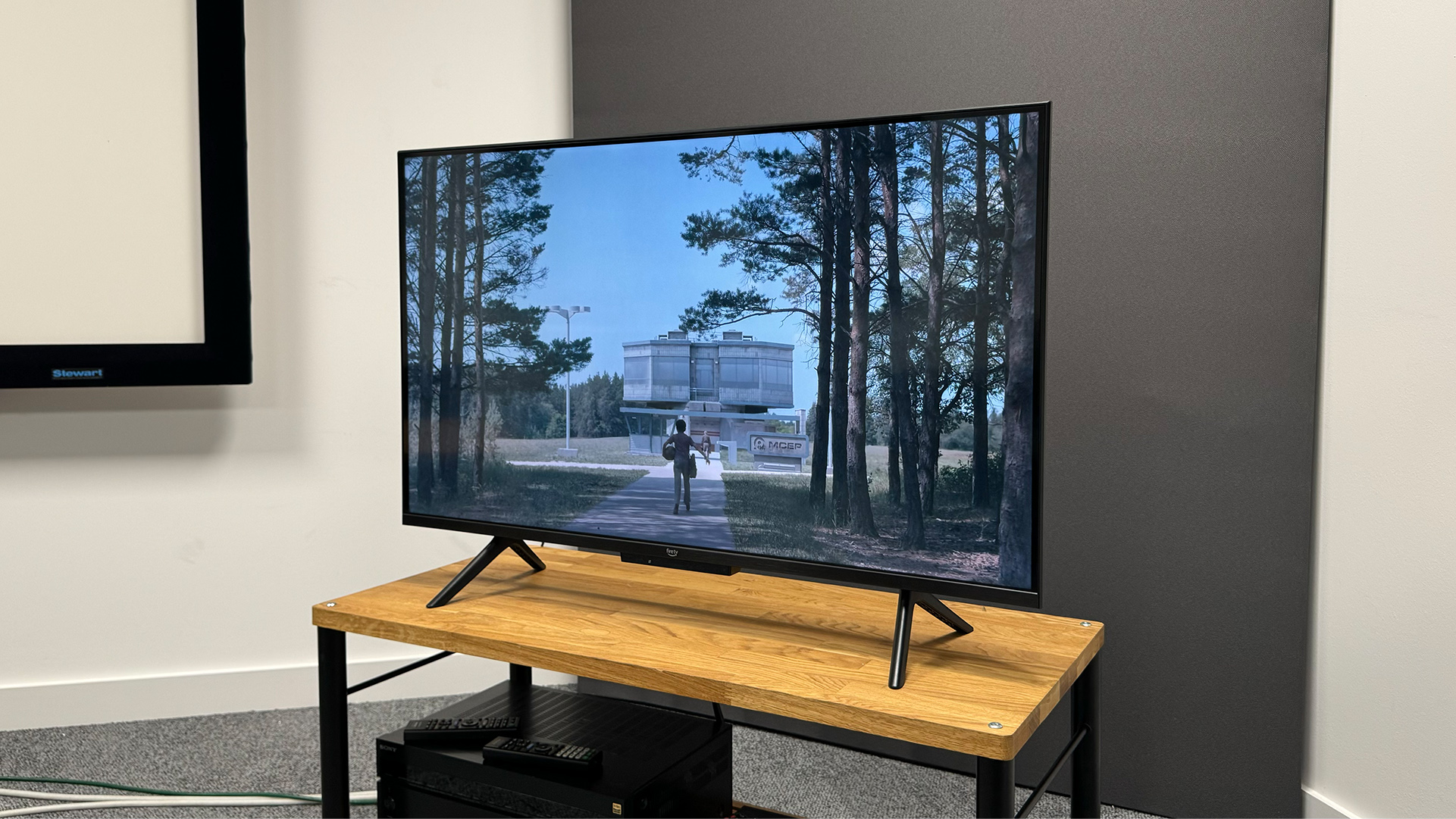
The larger Amazon Omni QLED TVs both impressed us in terms of sound quality, and this is thankfully one area in which the 43-inch model does not disappoint. As before, this is a simple stereo affair that does without fancy Dolby Atmos processing in favour of good, honest clarity and balance.
Dialogue is detailed and well-projected, which will be all that some people need to hear, but there is also impressive dynamic range, solidity and composure for a TV in this price range. In fact, the 43-inch Omni QLED sounds better than many TVs that cost double.
Of course, adding a soundbar will still result in a big uptick in sound quality – connect one to the HDMI eARC port and the Omni QLED will send it Dolby Atmos audio.
Verdict
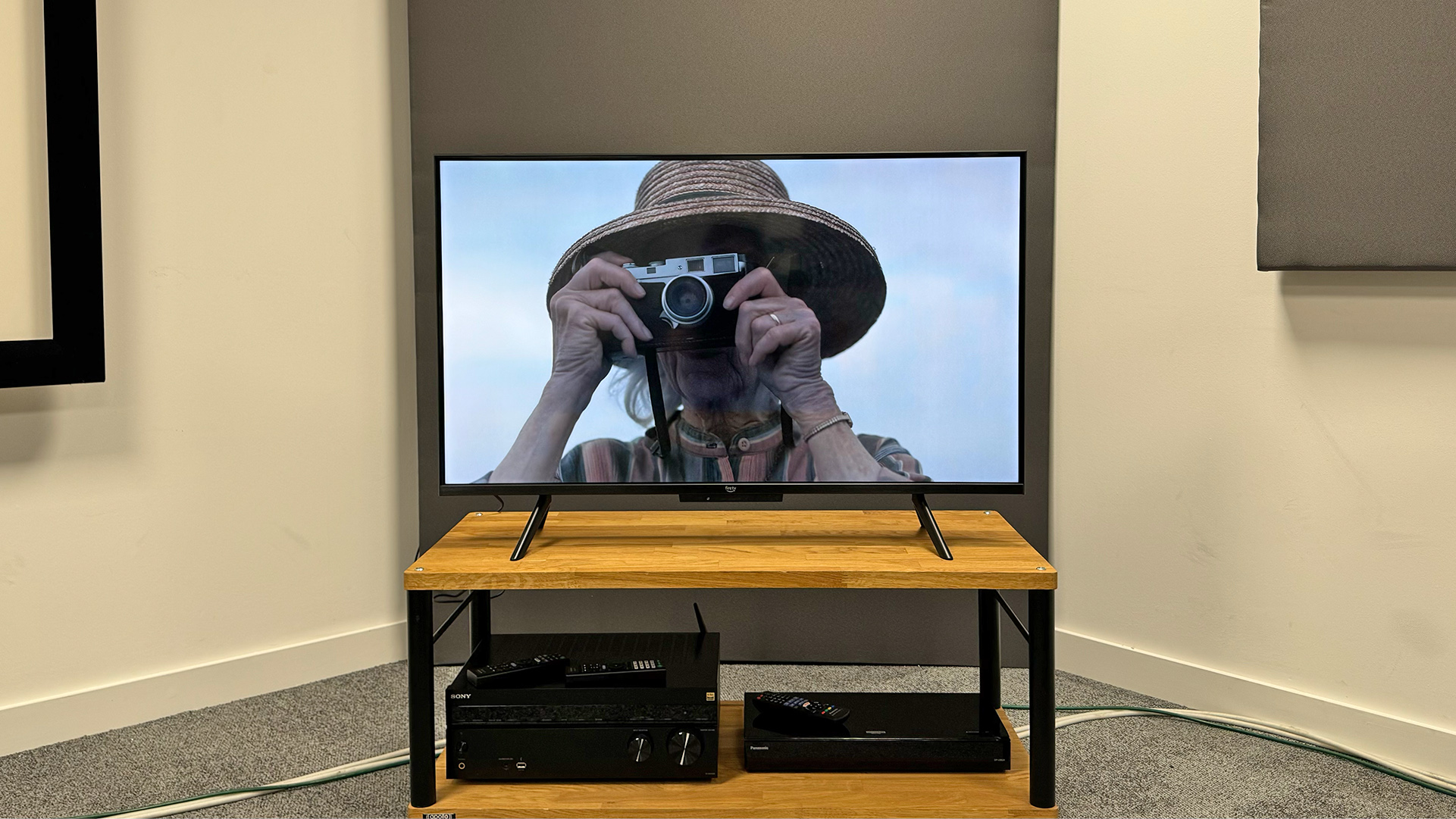
There are people who think that a TV will scale up and down in size with little to no impact on the overall performance, but the 43-inch Amazon Omni QLED is yet another reminder that that simply isn’t the case. It just isn’t in the same league as the larger models in the range, which are much more impressive than expected.
If you are specifically looking for a cheap 43-inch TV for watching football and F1 in your conservatory, it’s worth considering. Otherwise, you can buy better for even less.
SCORES
- Picture 3
- Sound 4
- Features 4
MORE:
Read our review of the Amazon Omni QLED 50 inch TV
Also consider the Hisense 43A6KTUK
Read our LG OLED 42C3 review
Best 43-inch, best 42-inch and best 40-inch TVs: superb 'small' TVs
QLED vs LED: which TV panel technology is better?
Tom Parsons has been writing about TV, AV and hi-fi products (not to mention plenty of other 'gadgets' and even cars) for over 15 years. He began his career as What Hi-Fi?'s Staff Writer and is now the TV and AV Editor. In between, he worked as Reviews Editor and then Deputy Editor at Stuff, and over the years has had his work featured in publications such as T3, The Telegraph and Louder. He's also appeared on BBC News, BBC World Service, BBC Radio 4 and Sky Swipe. In his spare time Tom is a runner and gamer.
- Lewis EmpsonSenior Staff Writer
-
flashgordon1952 so the big question is are they good value for money in a very large market of cheapies ie TCL and HisenseReply -
flashgordon1952 looks like the 50 is the one to have here. well when i do change my TCL 50 i will keep an eye on this one , Has to work with Sky Q and Netflix too just as wellReply

